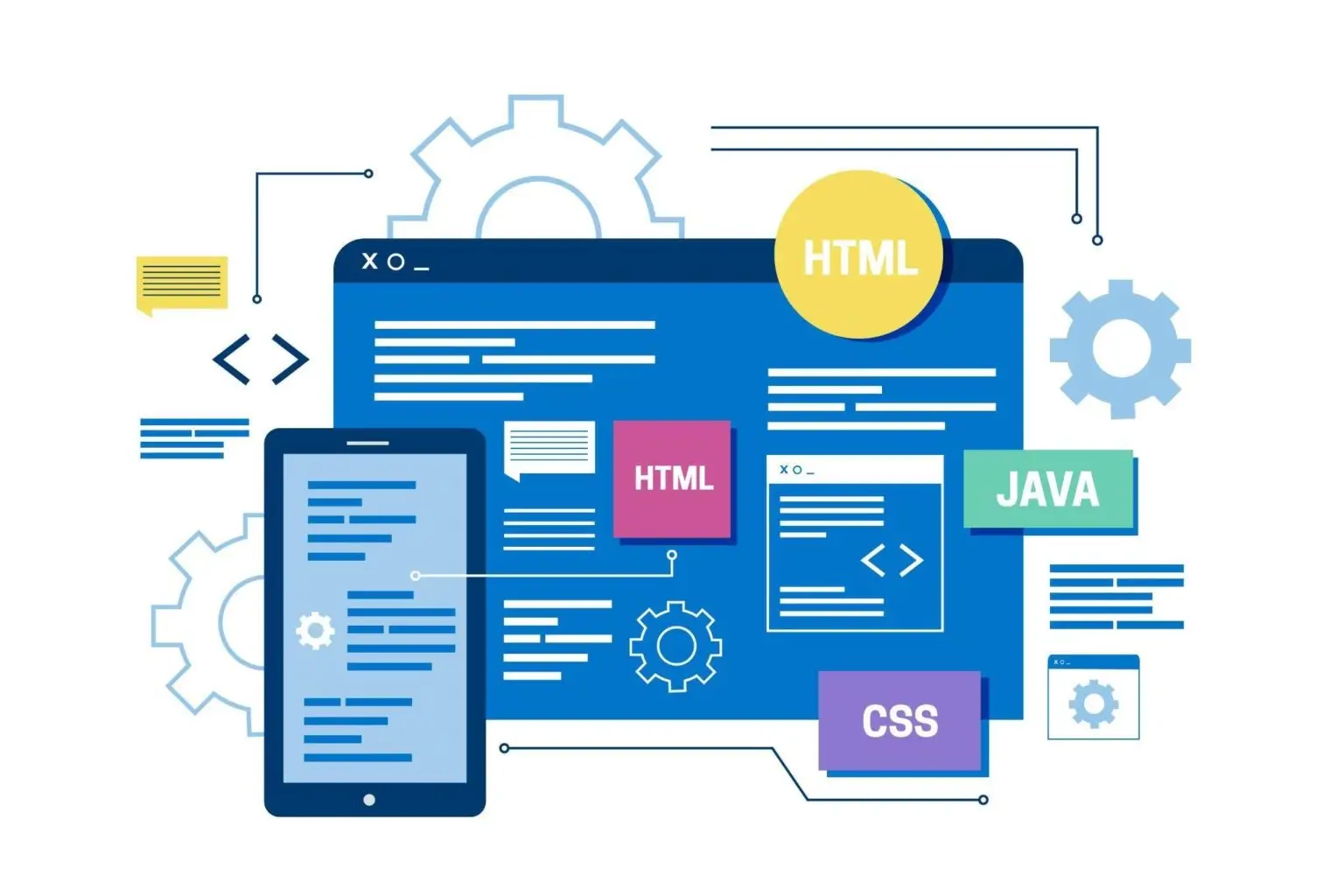Front-end development skills are the bedrock of creating captivating and user-friendly web experiences. In the digital age, where a website’s design and functionality can make or break its success, mastering front-end development strategies and skills has become a necessity. This comprehensive guide explores the essential aspects of front-end development, from understanding the difference between testing strategies to honing crucial coding abilities in text-based programming languages. By understanding and implementing these strategies and skills, web developers can craft interfaces that captivate users and foster engagement, adding both beauty and functionality to websites.
Understanding Front-End Development
Front-end development, often referred to as client-side development, focuses on creating the aesthetic design and interactive features that users directly interact with. It’s the art of transforming code into visually appealing graphical user interfaces that are accessible across various modern web browsers. In the development process, front-end developers work hand-in-hand with back-end developers, with each role being a basic building block in the creation of responsive websites with seamless user experiences.
Front-End Development Strategies

Responsive Web Design: One of the fundamental front-end development skills is the process of creating responsive websites. As the number of devices and screen sizes increases, ensuring your design adapts and looks equally beautiful on all screens is paramount. Utilizing Cascading Style Sheets (CSS) for media queries, developers can achieve responsive excellence, guaranteeing that users experience a consistent and visually pleasing website, regardless of their device. If you’re looking to learn more about responsive web design, check out the guide to responsive web designs that covers essential principles and practical techniques for crafting adaptable and visually stunning websites.
Mobile-First Approach: Embracing a mobile-first approach is a strategy that is gaining traction among front-end developers. This approach recognizes the growing dominance of mobile devices and suggests designing for mobile devices before adapting the layout for larger screens. By focusing on mobile interfaces first, developers can ensure that the website is optimized for a vast majority of users, enhancing the customer experience.
Performance Optimization: Achieving speed is a critical aspect of successful front-end development. Responsive web design alone is not enough; developers must employ strategies for image optimization, code minification, and leveraging Content Delivery Networks (CDNs) to ensure a fast and engaging user experience. This is especially important as page load times significantly impact customer experience and search engine rankings.
Progressive Web Apps (PWAs): As front-end development evolves, Progressive Web Apps (PWAs) have emerged as a popular programming language. These apps blend the best features of both websites and mobile applications, offering users a seamless, app-like experience directly in their browsers. This innovation has led to an increased demand for front-end developers skilled in building PWAs, demonstrating the dynamic nature of the field.
Essential Front-End Skills

HTML5 and Semantic Markup: Mastering HTML5 and semantic markup is an essential skill for front-end developers. This skill enables developers to structure content effectively, enhancing accessibility and search engine optimization. It’s the backbone of any well-structured and functional website.
CSS3 and Styling: Proficiency in CSS3 empowers developers to transform a website’s layout and functionality into visually appealing design elements. By using selectors, properties, and values effectively, developers can create aesthetics that captivate users and enhance the user experience.
JavaScript Fundamentals: JavaScript, a text-based programming language, is the core of interactivity on the web. Understanding JavaScript fundamentals is an essential skill for front-end developers. JavaScript enables developers to build interactive features, validate forms, and dynamically update content without requiring a full page refresh.
Unit Testing and Functional Testing: Front-end development skills extend beyond design and aesthetics. Unit testing and functional testing are crucial processes that ensure the functionality of websites. Testing verifies that the source code of the website performs as intended, enhancing the user experience and preventing errors that could deter users.
Version Control with Git: In the collaborative environment of web development, version control is indispensable. Git, an application programming interface (API), allows developers to track changes, collaborate on projects, and revert to previous versions when needed. Proficiency in Git is a must for any successful front-end developer.
Advanced Front-End Skills
CSS Frameworks: Leveraging CSS frameworks like Bootstrap and Foundation expedite the styling process. These frameworks offer pre-built components and layouts, allowing developers to create aesthetically pleasing websites more efficiently. CSS frameworks are the secret weapon for building beautiful websites with complex user interfaces.
UX/UI Fundamentals: Understanding the principles of user experience (UX) and user interface (UI) design is critical for creating user-friendly websites. Front-end developers collaborate with designers to ensure that the website’s design features and elements are not only visually appealing but also intuitive and accessible.
Application Programming Interfaces (APIs): Knowledge of APIs is crucial for front-end developers who want to integrate third-party services and functionalities into their websites. APIs enable websites to interact with external data and services, enhancing the user experience and adding valuable features.
Additional Skill Development
Front-end development is not limited to technical skills alone. Soft skills, such as effective communication, problem-solving, and teamwork, are equally essential. As websites become more complex and user expectations rise, collaboration with back-end developers, full-stack developers, and designers becomes crucial.
Online Resources and Skill Enhancement
In the ever-evolving field of front-end development, online resources play a significant role in skill enhancement. Online courses, tutorials, and forums provide a platform for front-end developers to learn new strategies, master emerging technologies, and keep up with industry trends. Staying up-to-date with the latest tools and techniques is vital for career growth in front-end development.
Conclusion
Front-end development skills are the driving force behind creating visually appealing, user-centric, and functional web experiences. From mastering responsive web design to understanding JavaScript fundamentals, front-end developers play a pivotal role in shaping the digital landscape. The ability to transform design concepts into fully functional and aesthetically pleasing websites is a testament to the prowess of front-end developers. As the demand for beautiful and engaging websites continues to grow, the role of front-end developers remains indispensable in the ever-expanding world of web development.







